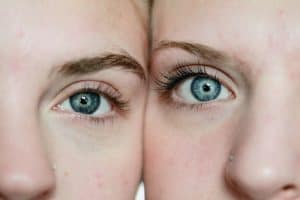Key Takeaways:
- Routine vision exams are necessary for maintaining optimal eye health.
- Preventing long-term damage is possible by shielding your eyes from harmful UV rays.
- Incorporating a balanced diet rich in vitamins can improve eye health.
- Understanding common eye conditions helps in early detection and treatment.
The Importance of Regular Eye Check-Ups
Having regular eye examinations with a professional eye doctor in Newtown, PA, plays a crucial role in detecting and preventing eye diseases. Regular check-ups are not just for those who require glasses or contact lenses; they are essential for everyone. Several eye conditions, including glaucoma and macular degeneration, do not show symptoms initially. Families should make it a point to schedule annual eye exams for all members, regardless of age.

Protecting Your Eyes from UV Rays
Exposure to UV rays can seriously harm your eyes, causing conditions like cataracts and photokeratitis. Many people are unaware of just how harmful UV rays can be, especially when you are outdoors for prolonged periods. Wearing sunglasses that effectively block all UV rays can significantly decrease the chance of harm. Protecting your eyes from harmful UV rays whenever you are outdoors, regardless of the season, is essential. It’s also worth noting that some contact lenses offer UV protection but shouldn’t be seen as a complete substitute for sunglasses. Also, wearing a wide-brimmed hat can provide extra protection against ultraviolet radiation.
Nutrition and Eye Health
A proper diet is essential for preserving good eye health. Carrots, leafy greens, and fish provide abundant beneficial nutrients. Vitamin A, C, and E. Vitamin A are necessary for keeping the cornea clear, and vitamin C is crucial for the blood vessels’ health in the eyes. Moreover, cataracts and age-related macular degeneration can be prevented by antioxidants present in various fruits and vegetables. You can significantly improve your eye health by making minor changes to your diet, such as including more fruits, vegetables, and fish.
Understanding Common Eye Conditions
Being aware of common eye conditions helps in early detection and treatment. Health conditions like dry eye syndrome, diabetic retinopathy, and age-related macular degeneration are more prevalent than many people understand. Learning about these conditions’ symptoms and risk factors can prompt timely medical intervention. For instance, dry eye syndrome is characterized by persistent dryness, itching, and burning in the eyes. Unmanaged diabetic retinopathy can cause blindness in individuals with diabetes. Age-related macular degeneration primarily affects older adults and leads to the loss of central vision. Understanding these conditions can help you seek medical attention before they progress to more severe stages.
Digital Eye Strain: Causes and Prevention
The growing prevalence of digital devices has led to a rise in digital eye strain as a common problem. Extended screens may result in problems like dry eyes, blurry vision, and headaches. Ensuring proper lighting and posture can reduce strain on your eyes. Using anti-glare screens and adjusting your devices’ brightness and contrast settings can also make a significant difference. Furthermore, consider using artificial tears to keep your eyes moist, and if symptoms persist, consult an eye care professional.
Practical Eye Care Tips for Children
Children’s eye health is equally important. Regular eye exams, protective eyewear during sports, and limiting screen time are essential for preventing vision problems in children. Encouraging outdoor activities can also benefit their overall eye health. Parents must be vigilant about their children’s vision, as kids may not always vocalize their issues. Watch out for signs such as squinting, sitting too close to the TV, or difficulty reading. Educating kids on the significance of wearing eye protection, whether involved in sports or simply outdoors, can cultivate habits that will have long-term benefits.
The Role of Rest
Proper rest is vital for eye health. Adequate sleep helps prevent issues such as dry eyes and fatigue. During sleep, the eyes are continuously lubricated, which clears out irritants like dust, smoke, or allergens that may have accumulated during the day. Practicing relaxation techniques, such as palming (cupping your hands over your closed eyes), can help relax the eye muscles and reduce strain. Additionally, regular breaks from activities that involve prolonged visual focus, like reading or screen time, are essential. These breaks can reduce eye fatigue and maintain optimal eye health.
The Impact of Smoking on Eye Health
Substances in cigarette smoke can also cause eye irritation, causing dryness, redness, or itchiness. Stopping smoking improves your overall health and safeguards your eyesight. Research has shown that non-smokers or those who quit smoking significantly reduce their risk of developing these eye conditions. It’s never too late to quit; even if you’ve smoked for years, stopping now can still help your eyes in the long term. Seeking support through counseling, medications, or support groups can make the quitting process more manageable.
